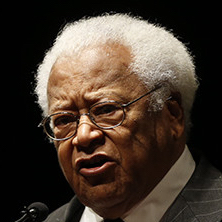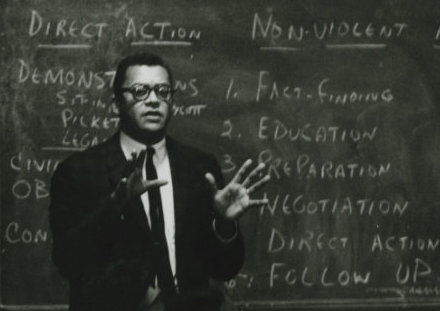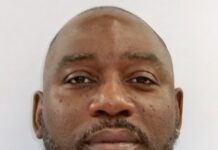 Rare photographs of and by the Rev. James M. Lawson Jr., a pivotal figure in the history of the civil rights movement, have been acquired by the Jean and Alexander Heard Libraries at Vanderbilt University in Nashville, Tennessee.
Rare photographs of and by the Rev. James M. Lawson Jr., a pivotal figure in the history of the civil rights movement, have been acquired by the Jean and Alexander Heard Libraries at Vanderbilt University in Nashville, Tennessee.
Lawson enrolled at the Vanderbilt Divinity School in 1958. While a student he helped organize sit-ins at lunchcounters in downtown Nashville. In 1960, he was expelled from the university for his participation in civil rights protests.
Lawson completed his divinity studies at Boston University and then served as director of nonviolent education for the Southern Christian Leadership Conference. From 1974 to 1999, Rev. Lawson was the pastor of the Holman United Methodist Church in Los Angeles. Lawson returned to Vanderbilt as a distinguished visiting professor from 2006 to 2009. An endowed chair at the Divinity School was named in his honor in 2007.
“We are thrilled that the James M. Lawson Jr. Photograph Collection now has a permanent home in the Heard Libraries Special Collections and University Archives,” said Vanessa Beasley, vice provost for academic affairs and dean of residential faculty. “These treasured photographs — spanning from the mid-1940s to the late 90s — will provide context for the rich scholarly materials found within the Rev. Lawson’s papers, which he donated to Vanderbilt in 2013.”
“Overall, the photographs are in very good shape,” said University Archivist Kathleen Smith. “We will inventory them, and we hope that the Rev. Lawson can help us with identifying some of the people in the photos during one of his return visits to Nashville. Our goal is to have the collection ready as quickly as possible so that it can be used by researchers around the world in tandem with the Lawson papers.”












Are you kidding me! How misguided is this decision of the Lawson Estate to willignly give this PRICELESS historical material to a racist institution such as Vanderbilt University. Based upon their cruel and disparate treatment of Rev. Lawson and countless other so-called Black Americans historically and currently. In my view, Vanderbilt University is not worthy of any substantive archival material from any so-called Black American. For those that dissent, you need have low race salience and should be duly ashamed.
Let the church say “AMEN!”
I completely agree with you. Yes, he has a right to give his collection to any institution. But, I find it troublesome that he gave it to a school that expelled him because he took a stand against segregation. I wonder how long it was before Vanderbilt would admit black students and not harassed them into quitting? Why not give such a collection to the Interdenominational Theological Seminary? It is a Consortium of three black seminaries that I am sure are capable of managing such a collection.